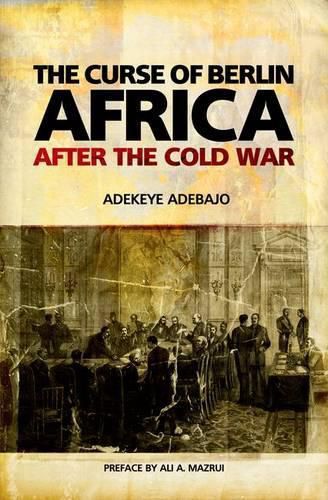Readings Newsletter
Become a Readings Member to make your shopping experience even easier.
Sign in or sign up for free!
You’re not far away from qualifying for FREE standard shipping within Australia
You’ve qualified for FREE standard shipping within Australia
The cart is loading…






At the 1884-1885 Conference of Berlin a cartel of largely European states effectively set the rules for the partition of Africa, an event whose historical and structural importance continues to affect and shape Africa’s contemporary international relations. This ‘Curse’ is a recurring theme in Adebajo’s trenchant historical analysis, even though its main focus is on contemporary African issues after the Cold War. The first part of the book examines Africa’s quest for security with three essays on Africa’s security institutions such as the African Union and sub-regional bodies; another on the political, peacekeeping, and socio-economic roles of the United Nations (UN) in Africa; and a third on Africa’s two UN Secretaries-General between 1992 and 2006: Egypt’s Boutros Boutros-Ghali and Ghana’s Kofi Annan. The second section of the book focuses on Africa’s quest for leadership, and five chapters examine the hegemonic roles of South Africa, Nigeria, the United States, China and France on the continent. The five chapters in the final section of the study analyse Africa’s quest for unity, and examine the roles and significance for Africa of six historical figures: Mandela, Mbeki, Kwame Cecil Rhodes, Obama, and Gandhi; as well as assessing the African Union and the EU in comparative perspective.
$9.00 standard shipping within Australia
FREE standard shipping within Australia for orders over $100.00
Express & International shipping calculated at checkout
At the 1884-1885 Conference of Berlin a cartel of largely European states effectively set the rules for the partition of Africa, an event whose historical and structural importance continues to affect and shape Africa’s contemporary international relations. This ‘Curse’ is a recurring theme in Adebajo’s trenchant historical analysis, even though its main focus is on contemporary African issues after the Cold War. The first part of the book examines Africa’s quest for security with three essays on Africa’s security institutions such as the African Union and sub-regional bodies; another on the political, peacekeeping, and socio-economic roles of the United Nations (UN) in Africa; and a third on Africa’s two UN Secretaries-General between 1992 and 2006: Egypt’s Boutros Boutros-Ghali and Ghana’s Kofi Annan. The second section of the book focuses on Africa’s quest for leadership, and five chapters examine the hegemonic roles of South Africa, Nigeria, the United States, China and France on the continent. The five chapters in the final section of the study analyse Africa’s quest for unity, and examine the roles and significance for Africa of six historical figures: Mandela, Mbeki, Kwame Cecil Rhodes, Obama, and Gandhi; as well as assessing the African Union and the EU in comparative perspective.